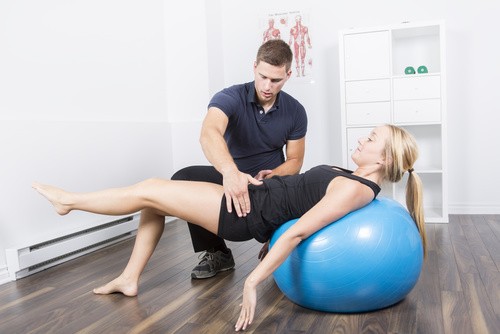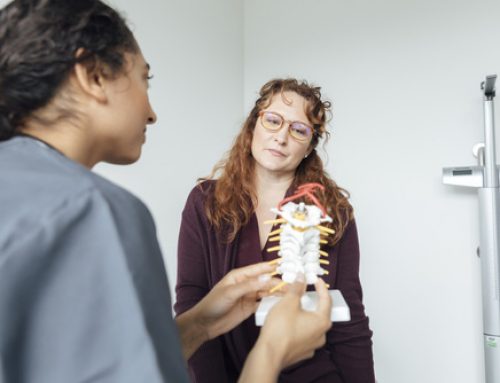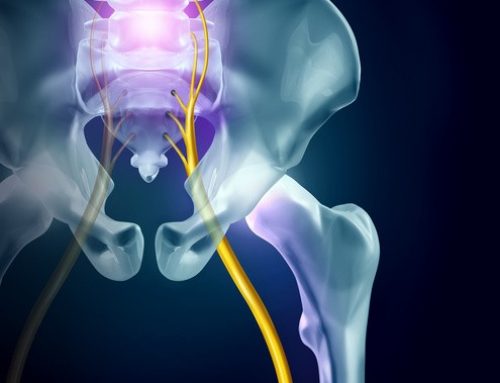Part of a healthy spine is having a healthy, strong core. Our core helps support much of our upper body, including stabilizing our spine. The core is responsible for upper body movement, as well as helping to maintain balance throughout the entire body. Without a strong core we are more susceptible to falls, poor posture and weakening in the rest of the body.
Without a strong core, our spine has to work extra hard to maintain its length and alignment. If the spine has to work overtime without the help of the core, our body is more likely to experience strains and aches throughout the entire back, from the sacral spine all the way up to the cervical spine. Think of how your body feels after slouching over on the couch for hours or hunched over a computer. Oftentimes, not so good. When we keep it upright with a strong core, we are more likely to sustain a healthy spine as a result of good posture. Notice how ballerinas walk and move. Their movement and training forces them to maintain a healthy posture, with a tall, long spine. This is not just from discipline, but also a strong core.
Even if going after rock-solid abs isn’t in your interest, having a healthy core will help you in various areas of your life, in addition to good posture:
- Lowers risk of low back pain
- With a strong core, you will naturally be able to bend over or down and rise back up without struggling. If you have a weak core, you will most likely start to kneel and bend and rise from the low back. When one area of the body is unstable or weak, another area or areas of the body will work to compensate for it. In this example, the low back will try to compensate for a weak core, and may result in low back aches and strains. The whole body is connected, so with one area out of alignment, soon the rest of the body may follow suit.
- Reduces chances of sciatica issues
- Without having a strong core, our spine is not nearly as supported as it would be by a healthy core. With more pressure on the low back, we tend to put pressure on the sciatic nerve, which runs from the lumbar spine all the way down our legs. When our low back is compensating for a weak core, it may lead to pinching or irritating the sciatic nerve.
- Helps avoid neck pain
- When we have a weak core, we naturally round in the back. Think of when you’re in a rush to eat dinner. You’re usually hunched over your plate, with your arms holding up the weight of your upper body, rather than your core doing the work. This rounding of the spine will usually, automatically tuck the chin and round the neck. When our neck doesn’t sit tall along our spine, we put it at risk for injury. A strong core will help our upper body maintain alignment, thus maintaining a long neck, and help to reduce neck pain.
Part of chiropractic care is reminding our patients to build up core strength. If you have questions about what core exercises are best for you and your back, do not hesitate to call or make an appointment with Dr. Stover. Our office is here to serve you and keep your spine strong and healthy.







